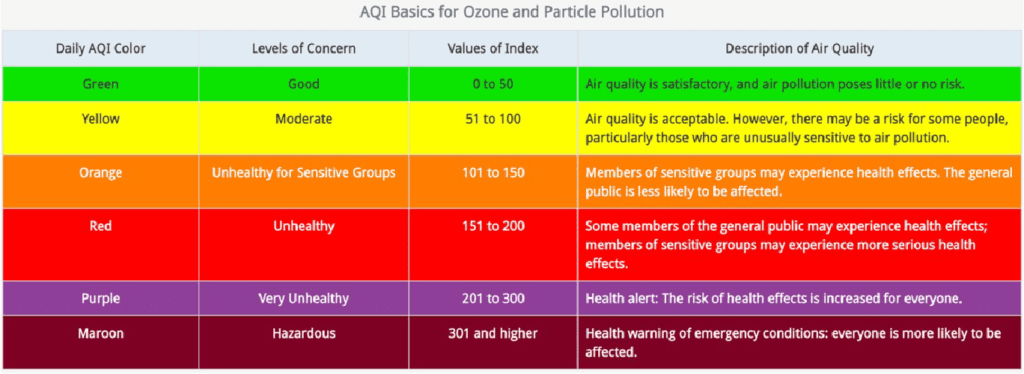As wildfires become increasingly common, the resulting smoke and poor air quality pose significant health risks. Exposure to wildfire smoke and polluted air can have adverse effects on the body, particularly the respiratory system. When exposure cannot be prevented, it is critical for both sensitive groups and the general public to take steps to avoid prolonged exposure and also wise to support the body in detoxifying with supplements.
The Impact of Poor Air Quality and Wildfire Smoke
Exposure to poor air quality and wildfire smoke can lead to a range of health issues. Fine particulate matter, toxic gases, and harmful chemicals present in smoke can be inhaled deep into the lungs, causing irritation and inflammation. Common symptoms include coughing, wheezing, shortness of breath, chest discomfort, and eye and throat irritation. Extended exposure to these pollutants can also exacerbate existing respiratory conditions, such as asthma and chronic obstructive pulmonary disease (COPD). Additionally, the toxic components of wildfire smoke can enter the bloodstream and affect other organs, potentially leading to systemic health problems.
When exposure to poor air quality is unavoidable, how can we reduce the negative effects? Here are four tips:
1. Monitor Air Quality: Stay informed about local air quality conditions. Adjust your activities based on the air quality index (AQI) set forth by the Environmental Protection Agency (EPA) and follow any advisories or guidelines provided.

2. Wear a Mask: If you must go outside, wear a tight-fitted N95 mask to reduce inhalation of harmful particles.
3. Create a Clean Indoor Environment: Keep windows and doors closed and use air purifiers with HEPA filters to help remove particulate matter from indoor air.
4. Take Antioxidants: Supplements such as NAC and Vitamin C may help to reduce oxidative stress and inflammation caused by air pollution.
NAC and Vitamin C for Detoxification
Some natural options may provide potential benefits in dealing with exposure to environmental toxins and may support the body’s detoxification processes.
NAC (N-Acetyl-Cysteine) is a precursor to glutathione, the body’s most powerful antioxidant and cellular detoxifier. As an effective means of increasing and replenishing glutathione levels, NAC supports the body’s ability to clear environmental toxins and pollutants and provides protection from normal exposure to heavy metals.
Vitamin C is another simple and effective antioxidant that may support the body after exposure to air pollution by reducing oxidative stress and modulating inflammation levels.
Takeaway
Air pollution and wildfires are on the rise, and it is important to be educated on their harmful effects and take proactive measures to protect the body. By taking steps like monitoring air quality and detoxing with supplements, you can potentially minimize the risks associated with airborne pollutants.
References
1. Air Quality Index (AQI) Basics. AQI Basics | AirNow.Gov, www.airnow.gov/aqi/aqi-basics/.
2. Chen H, et al. Cardiovascular health impacts of wildfire smoke exposure. Part Fibre Toxicol. 2021 Jan 7;18(1):2.
3. Jingyi Ren, et al., Vascular benefits of vitamin C supplementation against the fine particulate air pollution in healthy adults: A double-blind randomised crossover trial, Ecotoxicology and Environmental Safety, Volume 241, 2022, 113735, ISSN 0147-6513.

